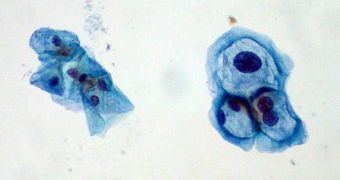According to a new statistical study, published in the latest issue of the respected scientific journal Cancer Epidemiology, Biomarkers & Prevention, it would appear that at least half of all physicians in the US state of Texas do not recommend or administer the Human Papillomavirus (HPV) vaccine to young girls below the age of 13.
This happens in spite of the fact that the US Advisory Committee on Immunization Practices recommends the procedure after the age of 11. The bad news is that the situation may be similar throughout the country, experts warn, as national administration rates are between 6 and 25 percent, e! Science News informs.
“Two years after the FDA approved the vaccine, the study suggests that additional efforts are needed to encourage physicians to follow these national recommendations. Most physicians are aware of the vaccine and what it prevents, but they may lack knowledge about issues of safety and how to address parental concerns. That may be making them reluctant to deliver the vaccine,” explains Cincinnati Children's Hospital Medical Center associate professor of pediatrics Jessica Kahn, MD, MPH.
The history of the quadrivalent human Papillomavirus vaccine in the state of Texas was plagued with controversy since the federal government and the Food and Drug Administration first approved it, back in 2006. At that time, Texas set itself right in the middle of the scandal, when its governor passed a mandate saying that vaccination was mandatory. Swiftly, the legislature rendered the act without power, and controversies about its effectiveness and necessity raged on.
“Physicians train all across the country using more or less the same curriculum, so as a group they tend to be fairly homogeneous in their beliefs,” Kahn argues. “Physicians are the gatekeepers for this vaccine and the studies have shown that one of the most important predictors of health behavior is what your physician recommends,” adds University of Texas School of Public Health Division of Health Promotion and Behavioral Sciences director Sally Vernon, PhD. The study paper revealed that only 48.5 percent of Texas physicians always recommend the HPV vaccine.

 14 DAY TRIAL //
14 DAY TRIAL //